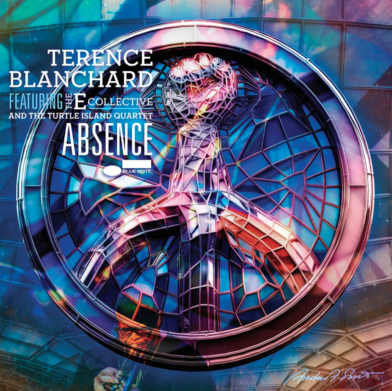“I’d like to thank Wayne Shorter for being brilliant,” Terence Blanchard simply and succinctly writes on the liner notes for Absence, an album dedicated to and inspired by the legendary saxophonist and composer. The new release by trumpeter, composer and educator Blanchard comes soon after he lit up the press for his opera, Fire Shut Up In My Bones, which stands as the first work by a Black composer to be performed at the Metropolitan Opera house in it 134-year history. It’s an understatement to say that the New Orleans native, who’s also noted for scoring many of Spike Lee’s films, remains prolific in his diverse endeavors.
The album continues Blanchard’s thirst for diversity by his use of both the trumpet and synthesizers and bringing together his longtime group, The E-Collective, and a string quartet. It contains four Shorter originals, several cuts by members of The E-Collective and one from the violinist and artistic director of the Turtle Island Quartet. Just one, “I Dare You,” comes from the trumpeter’s pen. The title is from a quote from Shorter who once said, “The word jazz to me means, ‘I dare you – let’s jam into the unknown.’”
The composition and performance here certainly live up to its name. “I Dare You” is offered in two parts with the “Intro” provided solely by the strings with Blanchard and his band stepping in to soar above the rather grave, purposely plodding rhythm.
“Dark Horse,” written by E-Collective guitarist Charles Altura, might be a good gateway into Absence for those a bit timid about jumping into Blanchard’s and Shorter’s compelling musical worlds. The tune features the trumpeter fronting his terrific band, sans strings, on this beauty of a tune.
Dig Blanchard and company’s take on Shorter’s “More Elders,” which is progressively arranged by pianist Fabian Almazan. The musicians gather in a cacophony of tones with the trumpeter sounding like he’s having a ton of fun New Orleans style. Earlier in the album, “The Elders” offers a gentler and equally intriguing take on Shorter’s composition.
When Blanchard faces the genius of Shorter as he does on this album, the trumpeter bows down while making the music ring out with his own brilliance.




